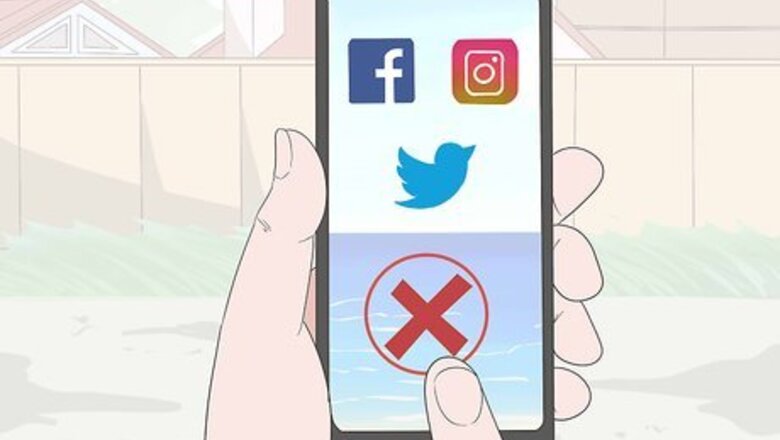
views
Block Tempting Websites
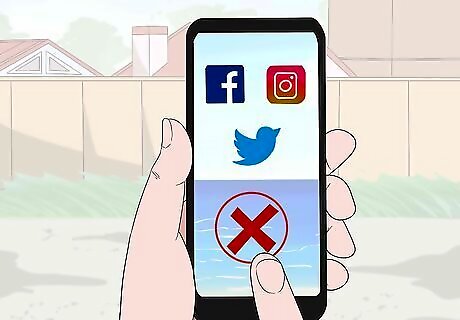
Remove social media apps from your phone, like TikTok. If you find yourself picking up your phone and going on the internet every time you get a notification, delete the social media apps on your phone. Make it a rule that you can only check these apps on your computer. This may help to prevent you from accessing them on and off all day. While social media apps are convenient for staying connected, they can also cause you to hop on the internet much more frequently than you normally would. You may notice a big difference in your internet habits by simply deleting the apps.

Turn off your smart phone, tablet, and computer during social activities. If your devices are on and within arm’s reach, you may find yourself mindlessly checking them during meal times and other social activities. If you’re spending time with family or friends, turn off your device or at least put it on silent and place it somewhere out of sight, such as in a coat pocket, in your purse, or in another room. If you are worried about missing an urgent phone call or text, set your phone to silent, but with an exception to ring or buzz for phone calls or texts from certain contacts.
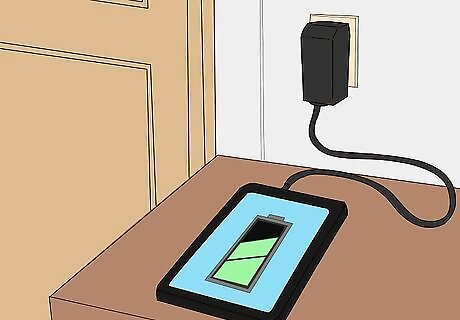
Charge devices in another room at night to prevent bedtime browsing. If you often browse the internet on your phone while lying in bed, prevent yourself from doing this by charging your phone in another room of the house. Read a book (a paper one) or a magazine, or use a relaxation technique to help you wind down at night.Did you know? Bedtime browsing can interfere with your ability to fall asleep and stay asleep due to the blue light that your smart phone emits, so stopping bedtime browsing may also help you to sleep better.
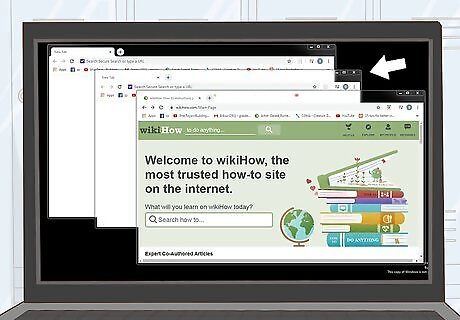
Look at 1 website at a time instead of having multiple tabs open. If you tend to look at one website, then open another tab, then another, and another, you might benefit from limiting yourself to one tab at a time. If you are one a website and it leads you to another one, close the old tab. This can help you to avoid going back and forth between multiple sites and wasting time.

Block time-wasting sites on your internet browser. If you want to avoid accessing sites that take up a lot of your time, you can block them by changing the settings in your internet browser. The method for this will vary depending on the type of browser you use and whether you use a Mac or PC. By blocking time-wasting sites, such as social media, you may find yourself spending less time online.
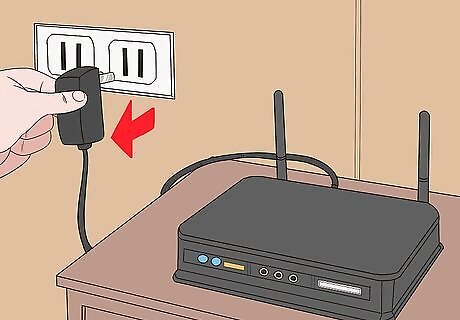
Turn off or cut your home wifi access to prevent internet use entirely. Unplug the router and set a timer for 1, 2, 3 hours, or however long you want to remain offline, then plug the wifi back in when you are ready to use it again. For a more drastic option, you could cancel your home internet access. This may be a good solution if you find yourself unable to control your urges to browse the internet, respond to emails, or check social media. If the temptation to browse is strong and you find yourself absentmindedly logging on, always unplug your wifi router for a portion of the time you are at home. Unplugging is also a good option if you have other household members who want to cut back on their internet usage.
Developing Healthier Habits

Replace internet use with a healthy activity. Exercising, reading a book, writing, studying, knitting, and doing crossword puzzles are all better alternatives to mindlessly browsing the internet. If you want to cut back on how often you are using the internet but aren’t sure what to do with the extra time, identify a few activities that you enjoy and pick one to do instead when you’re feeling the urge to go online. For example, you could keep a knitting project in your purse and pick it up any time you find yourself wanting to check social media. Or, you could keep a small paperback book with you during the day and read whenever you’d normally browse the internet.

Use relaxation techniques to reduce stress and anxiety. Yoga, meditation, progressive muscle relaxation, and deep breathing are all great ways to relax when you’re feeling stressed. Instead of reaching for your smart phone or laptop when you are feeling stressed, try using one of these techniques to calm yourself. Other strategies you might try include: Going for a walk in nature Calling a friend to talk Taking a bubble bath Engaging in a favorite hobby Tuning into the present

Reach out to friends and family to build more in-person connections. If you’re craving social interaction, call up a friend and make plans to do something fun, or arrange a family dinner or game night. If you don’t have friends or family who you can turn to, look into a special interest group that you can join. Attend in-person meetings to connect with other people who share your interests and make new friends. Tip: Some people turn to the internet is because they feel lonely, but the internet is not a substitute for connecting with people in-person. Make sure to balance your virtual socializing with in-person socializing.
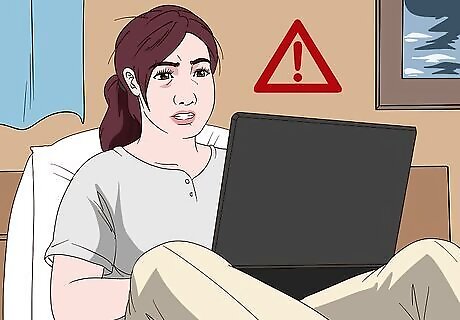
Watch for signs of internet addiction and seek help if you notice them. If you are concerned about becoming addicted to the internet, staying aware of the signs of internet addiction may help you know when to seek help. Be on the lookout for any signs that you may have become addicted and act right away to curb your internet usage. If strategies to overcome internet addiction don’t work for you, talk with your doctor or a therapist for help. You may be addicted to the internet if: Internet usage interferes with your normal daily activities, such as making you late for appointments, school, or work. Staying up late browsing the internet becomes the norm and you get less sleep as a result. You find it difficult to focus on other tasks, such as work or school assignments, because you keep logging on to check things. Cutting back on your internet use makes you feel irritated or anxious. You withdraw from social activities and lose interest in doing things you use to enjoy. You feel worried that you might miss out on something if you don’t check the internet regularly.
Tracking and Limiting Internet Use
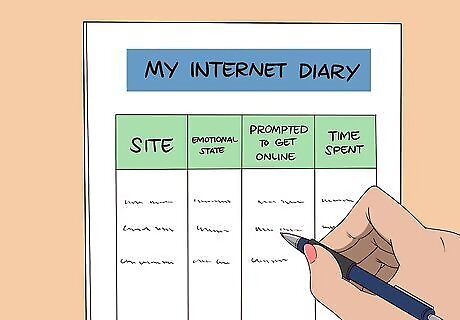
Keep a log of how much time you spend on the internet. Start an internet diary where you write down the details of your daily internet use. Record the time, the sites or apps you accessed, your emotional state when you got online, what prompted you to get online, and how much time you spent using the internet. Review the log after 1 week to check for patterns and to become more aware of how much time you are actually spending on the internet. Tracking the time you spend on the internet can help to make you more mindful of your usage and this strategy might also make it easier to prevent an addiction from getting out of hand.
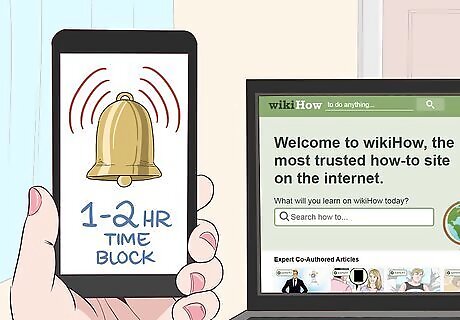
Set a timer to help you limit the time you spend online. One way of limiting the time you spend on the internet is to set up a 1-2 hour time block during which you are allowed to access the internet, and use a timer to track it. If you can limit your internet use to this time of day only, it may drastically reduce the total time you’re spending online. For example, you might limit your internet use to the hours of 3:00-5:00 pm daily and make the internet off limits at other times of day. Or, you could break your internet use into 2 time blocks, such as from 9:00-10:00 am and 7:00-8:00 pm daily. Set a reminder in your phone so you know when to start and stop.
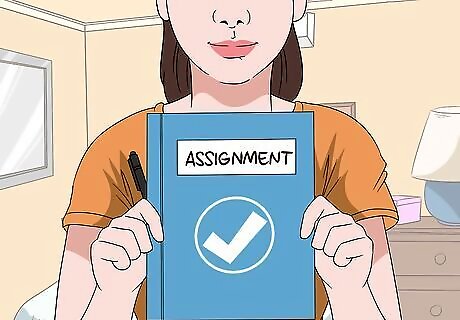
Create distractions for yourself to postpone internet use. Tell yourself you can check the internet in 15 minutes, and keep postponing internet access for as long as you can stand. While you wait, distract yourself with something, such as tidying your desk, completing a homework assignment, or loading the dishwasher. This strategy may help you to cut back on your overall internet usage without much effort.Tip: Avoid distracting yourself with things that are like using the internet, such as computer or video games. Try to do something immersive that does not involve looking at a screen.
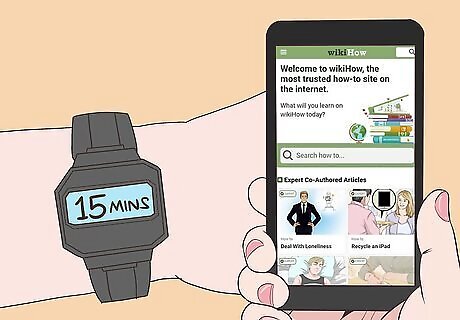
Decrease how often you check the internet in 15 minute increments. If you check the internet many times throughout the day, then cutting back to checking it only once or twice per day may be too drastic. Instead, you could start by gradually weaning yourself and extending the time you wait to check the internet by 15 minutes each time. This may help you to reduce your overall internet use in a less jarring way. For example, you could start by waiting 15 minutes to check the internet, then wait to check it again for 30 minutes, then wait 45 minutes, then wait 1 hour, and so on. See what feels comfortable for you. You may be able to increase your time in 20 or 30 minute increments, or you might find that you need to increase it more gradually, such as 5 minutes, then 10 minutes, then 15 minutes, and so on.




















Comments
0 comment